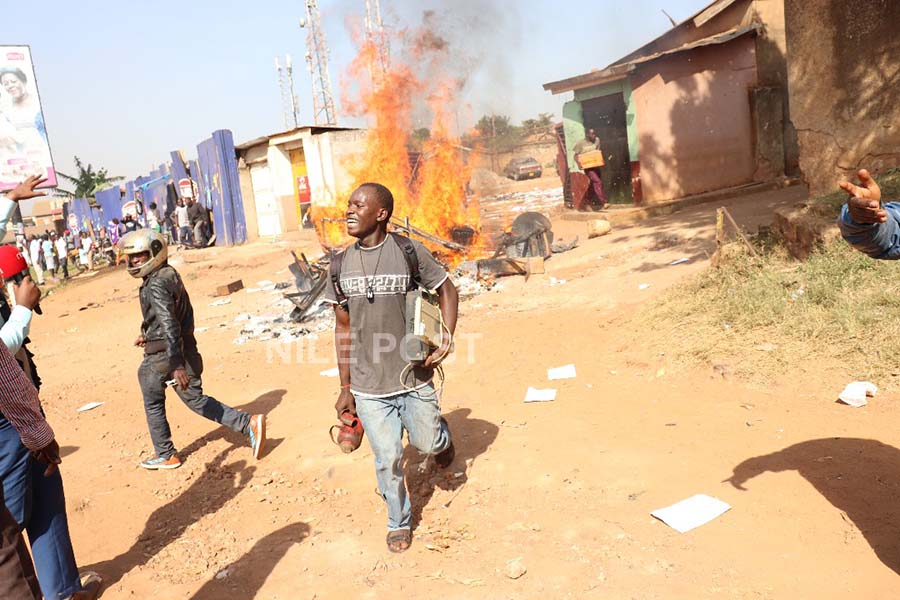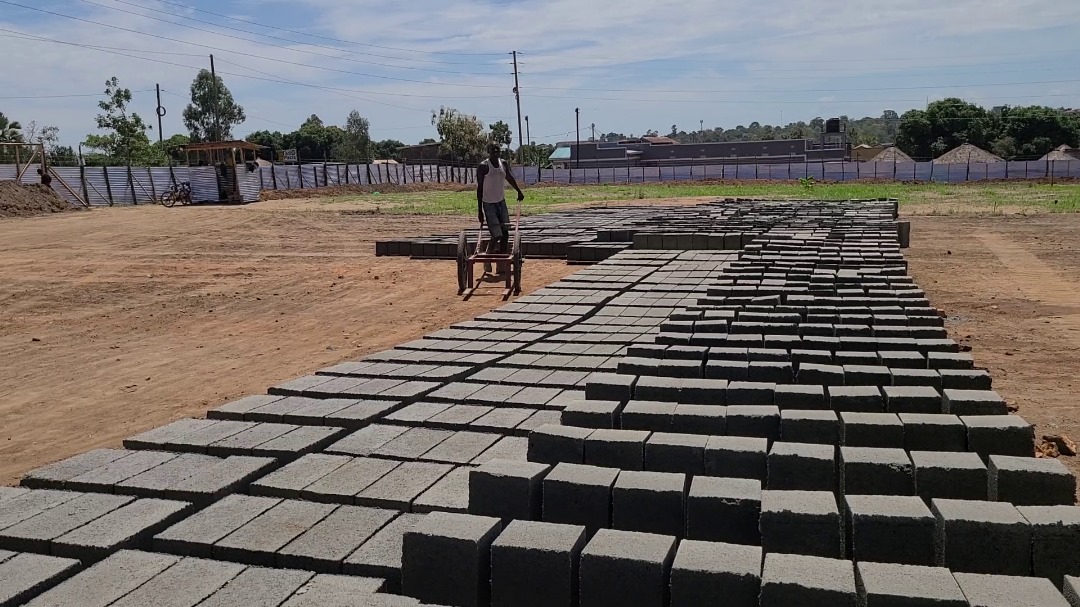NRM can do better on youth involvement in nation building
By Arthur Nuwagaba Mirama
As we celebrate the 33rd NRM Anniversary, we need to think more about youth’ involvement in nation building.
Keep Reading
We all know that each stage of a human life has its different features. Childhood is known for its innocence, Adolescence for spurt in growth and for its characteristic enthusiasm of energy, aggressiveness, the will to fight and overcome difficulties and to do brave activities. It is the uncertain period of man’s life when enthusiasm is in peak, and man has active and vigorous co-operation of the body to fulfil his dreams, good or bad. Jagdish Chander, (2001) described the period of youth as “characterized by the spirit of adventure and the shine of energy, tempered by a growing sense of responsibility and maturity. A man in the span of his youth can thus make a lasting contribution to the cause of understanding the inner and outer nature, invention, courage, creative art and architecture and bring to bear his energy on the toughest issues of life, and find keys to their solution. This period on man’s life is, therefore, of unspeakable significance”.
Therefore, Youth is a force and a valuable human resource in every country. They carry the aspirations and bear responsibility for change, progress and innovation. Youth can make or mar society. There is always a tussle between tradition and modernity because of which youth are often misunderstood by the older generation. Immaturity, inexperience and thoughtless actions are some of the characteristics attributed to them by our NRM elders. This has created a gap between the two generations and denies the youth the chance to fully participate in decision making of their country.
Despite that misconception, Youth have the zeal to initiate revolution. A reading of Ugandan history shows that youth played a significant role in the freedom struggle. Post-independence, youth power changed the fate of several state governments Uganda inclusive. For example, it’s said that When Uganda became Independent in 1962, the first Prime Minister Milton Obote was about 35 years, Grace Ibingira was about 28 years, and Adoko Nekyon was about 25 years and many others, who formed the first parliament of Uganda and took leadership of this country. All these were youth, not forgetting that almost 80% of NRA combatants who liberated this country in 1986 were youth. Youth in other countries have succeeded in changing their politics. Indonesian youth brought down the government of President Soekarno. Young Czechs stood up to the military assault of their country. More recently, youth in Cambodia, Cuba, France and Pakistan proved their potential to change.
Today, Ugandan youth make up about a third of our population and constitute a vital and vibrant human resource. They have the right and an obligation to participate actively in national development and in shaping the destiny of the nation which is, in point of fact, their own destiny.
Youth represent the most vibrant, vocal and voluble section of society. They play a pivotal role in socio economic changes and development of society and country. A country can only progress when the energy of youth is constructively and productively channelized. Nearly 70% of Uganda population is less than 35 years of age. Therefore, there is a need to create increasing opportunities for them to develop their capacities and capabilities, thus making them economically productive and socially useful.
 Youth are a renewable energy source for society
Youth are a renewable energy source for society
If Government doesn’t create opportunities for the youth, I see an increasing number of youths opposing the government, and this will create constant battles on the streets between the Police and the youth. This is because unemployment creates a sense of vulnerability, a feeling of uselessness and idleness among young people; and consequently, heightens the attraction of engaging in illegal activities. Youth unemployment is an obstacle to economic well-being and poverty reduction. Unemployment among youth creates a number of socio-economic issues. A large unemployed youth population not only puts the nation at risk of instability, but also costs the country in terms of productivity and health expenses. Some research suggests that one year of unemployment among youth reduces life expectancy by about five years (Sahni, 2005).
 Unemployed youth are easy prey for manipulation
Unemployed youth are easy prey for manipulation
Therefore, NRM Government should be conscious of the need to tap youth power. With the way the number of the youth that voted in last general elections, Uganda’s youth have become politically important because they can determine slope the political scales in an election. This realization should encourage NRM to attract the youth by including related issues in their political agenda. For Example, how can a ministry that handles Youth issues be given 1% of national budget?
Youth are a nation’s strength. Their characteristic energy and capabilities support the body politic. They are not only the backbone of an institution, but they also form a sensitive age group that harbour dreams for important social changes. The development of nations is fully dependent on the abilities of youth. The power of youth must be positively utilized in all areas like education, trade, business, etc. and integrated with moral value education to spread peace and welfare throughout the world.
Youth in Uganda constitute a sizable, vibrant and resourceful segment of our society who is fired with the desire to scale greater heights. Children and youth are our hope for tomorrow. There can be no greater cause, no better investment, and no greater priority for development consensus than bringing the needs, rights and expectations of the youth to the centre-stage of development concern. It is our duty to rekindle the imagination of our youth so that the nation surges ahead with added strength and vigour. It also essential that our youth be energised to participate in the task of national reconstruction. Failure to do so would mean a waste of national resources. They should be made to understand the given project and its importance to society; and the part they are expected to play. With enthusiasm and commitment, they are sure to work hard for its fulfilment. Success results in a sense of fulfilment with the realisation that they have played an important role. This will motivate them further and definitely not a difficult task.
A number of schemes, projects and programmes are possible wherein their total involvement will bring quicker and better results. Youth can play a pivotal role to bring about the socio-economic regeneration of the society. For example, youth power can be mobilized to work towards ending several evil practices like theft, corruption and others that still persist in Uganda.

They can participate in projects aimed at raising agricultural output. The youth may be assigned the job of dissemination of knowledge for better farming, new techniques and proper use of fertilizers and pesticides. What is required is that they should be given adequate training in these tasks. In a drive against economic offences, their energy may be used in moulding public opinion in favour of eradication of such offences. Another potential area of youth involvement is adult education and universalization of education. Youth can take on the responsibility of meeting performance targets set by the government.
By enlisting the massive army of youth, an otherwise idling man-power will be mobilized for productive purposes. Doing so would prevent youth from being influenced by negative forces like terrorist groups, criminal gangs and political pressure groups like People Power which may result in unrest and violence. It is, therefore, in the national interest that these young people are attracted to work for development.
Such involvement of the young people would generate a sense of pride and self-confidence in them. A sense of achievement of being appreciated as being useful to society is the most powerful deterrent to going astray. This will also help them to develop a nationalist outlook. The result will be an accelerated process of socioeconomic regeneration and democratic decentralization.
The government spends large amounts of money directly or through various organizations on schemes and programmes for national development. Involving youth in these activities would cost less and also accelerate the meeting of development objectives.
Youth are critical for the continued economic development and demographic evolution of a nation. Typically, the youth population constitutes the cohort entering the country’s workforce and is expected to bring new learning and updated skills that will help renew and improve the country ‘s stock of human capital.
The NRM Government should therefore formulate a policy with the following objectives:
• To instil in youth awareness of and respect for the principles and values enshrined in the Ugandan constitution.
• To promote awareness among youth of Uganda’s historical and cultural heritage and fill a sense of pride and national identity.
• To help youth to develop the qualities of discipline, self-reliance, justice and fair play.
• To provide youth with maximum access to education; this, apart from developing their all-round personality, would equip them with suitable professional and vocational training to enhance employment and self-employment opportunities.
• To make youth aware of international issues and involve them in promoting world peace.
Fulfilment of these objectives would result in transforming Uganda’s youth into a force that would drive the country’s progress and development.
Happy 33rd NRM anniversary celebrations!
ARTHUR NUWAGABA MIRAMA
A member of OFA Think Tank
arthurmirama@gmail.com













